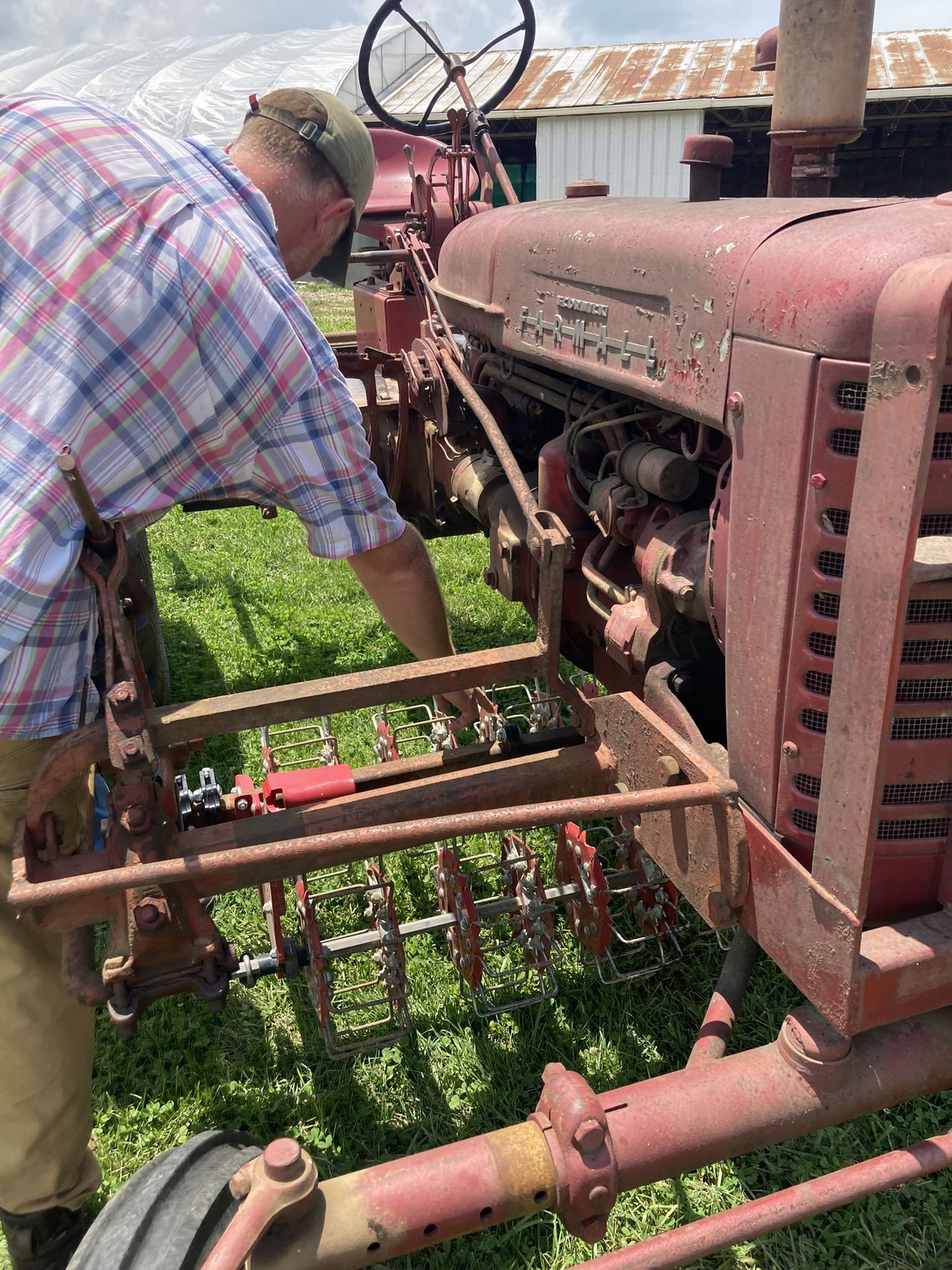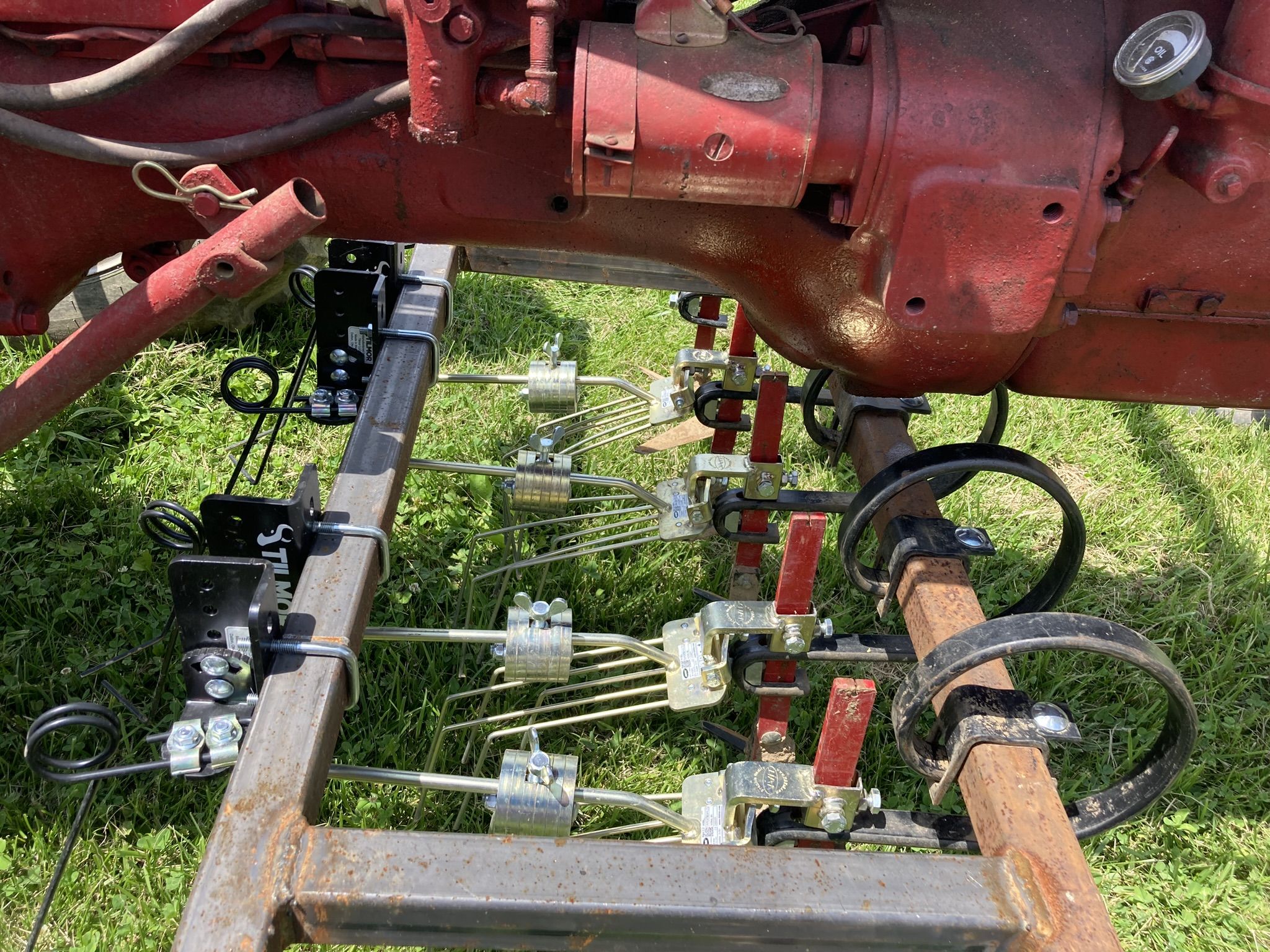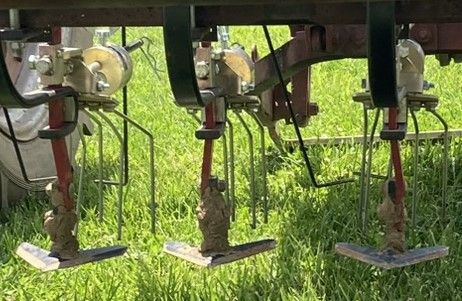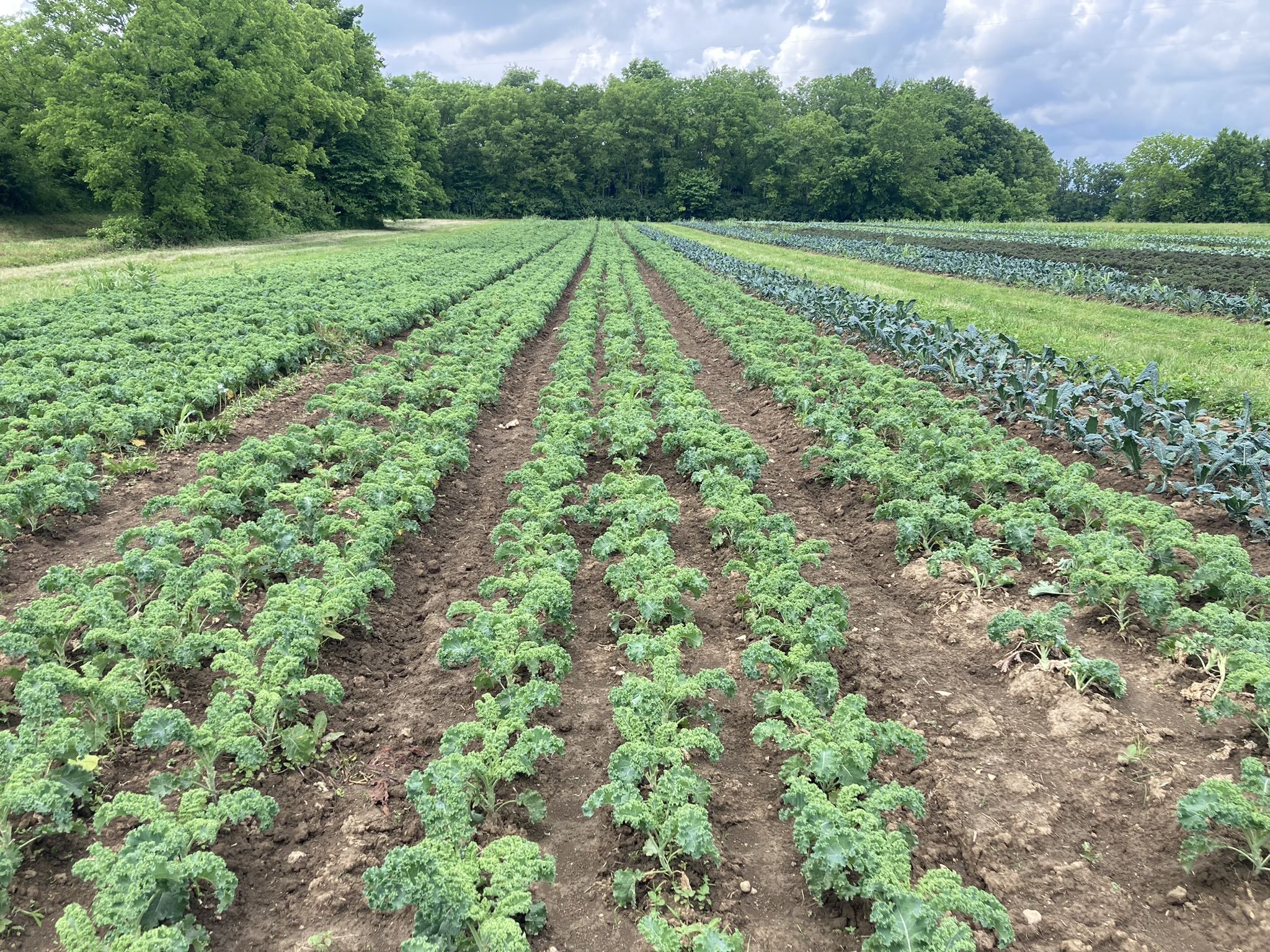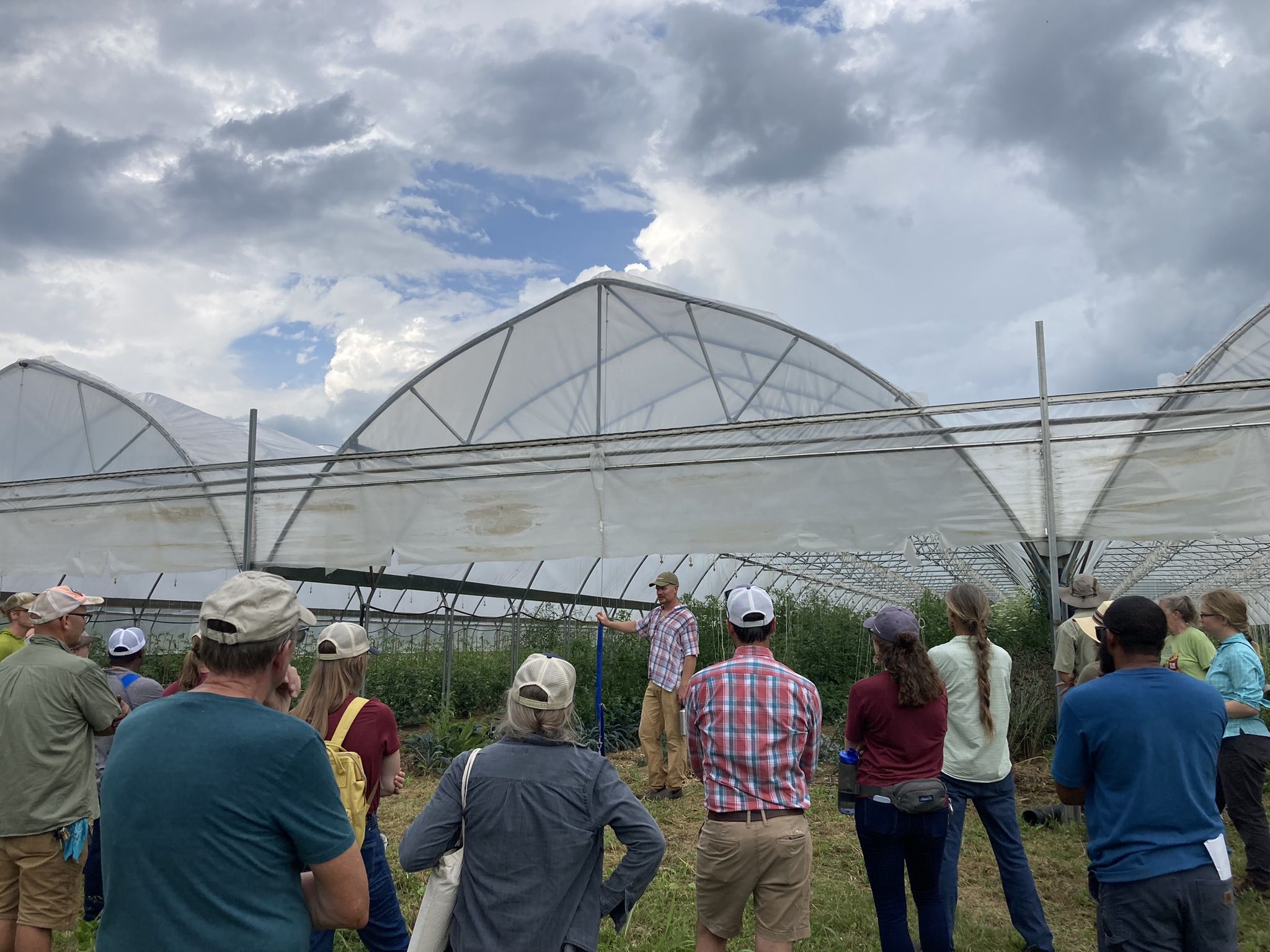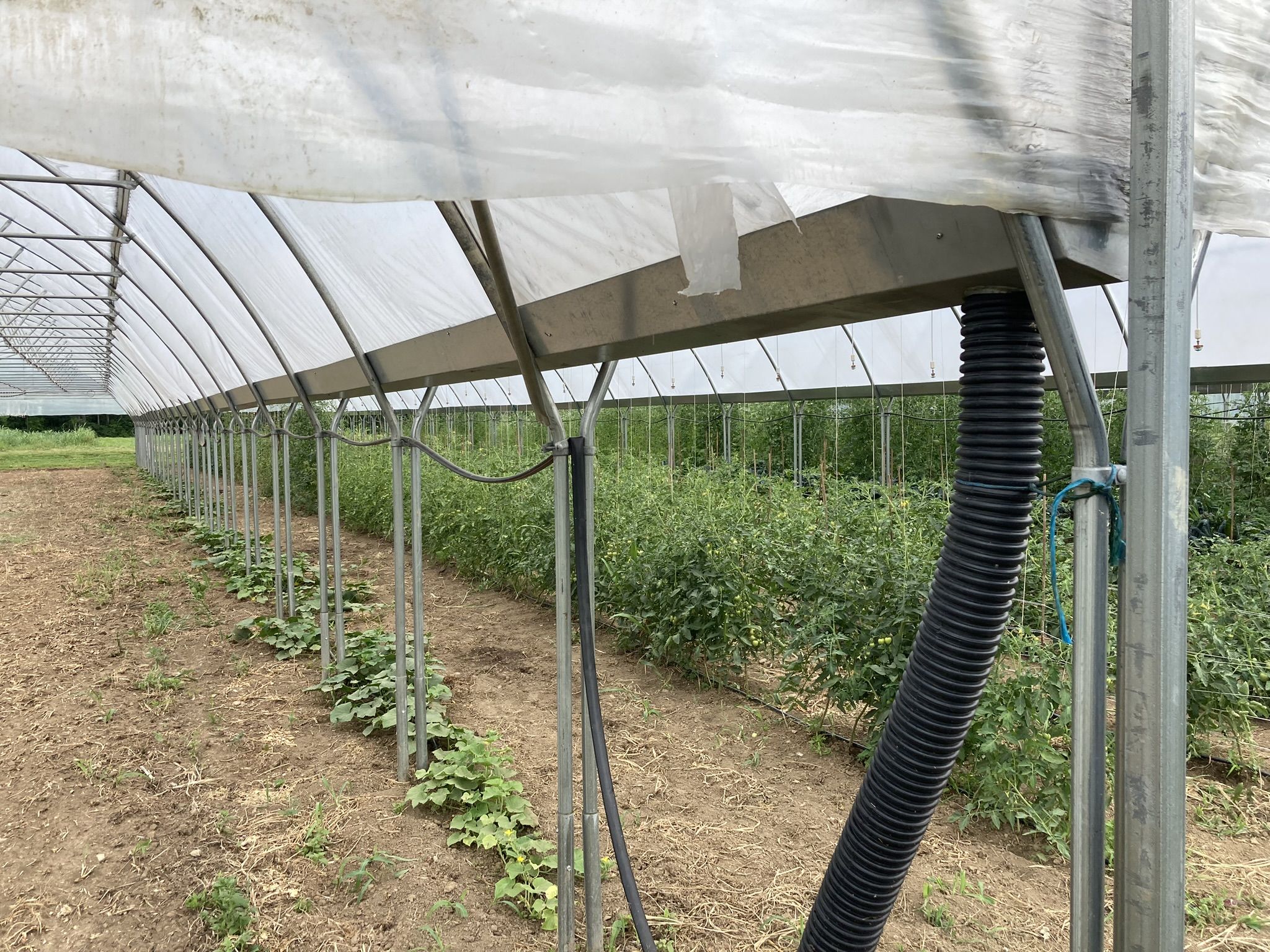A new network in Kentucky will support organic practices and verify they are meeting definitions of climate-smart agriculture

Sam Miller, center, District Conservationist at NRCS London, KY, hands the mic to Jansen Koeberlein, Soil Conservationist at NRCS Richmond, KY, while farmer Bryce Baumann looks on during the “Reduced Tillage, Cover Crops, and Crop Rotations on an Organic Vegetable Farm” field day at Lazy Eight Stock Farm.
Written by Brian Geier
The first time Kentucky NRCS agent Sam Miller was approached by a farmer about support for organic practices was over 12 years ago. Bryce Baumann of Lazy Eight Stock Farm, who had been farming since middle school, was on a non-stop search for how to farm full-time. It was 2012, and Bryce was transitioning his family’s farm to organic and starting the farm’s first CSA season, two moves that eventually allowed him to take the plunge. It was this young farmer who first introduced Sam, a seasoned NRCS agent, to the world of organic production. “Bryce made me learn organic, really quick,” Sam said at a field day hosted at Lazy Eight and organized by the Organic Association of Kentucky (OAK).
Since then, Lazy Eight has implemented several contracts with NRCS to support practices like cover cropping and pollinator plantings, expanding and enhancing irrigation systems, and constructing high tunnels. They now operate a thriving CSA with 250-300 members each season and recently added a flower share to diversify income and the farm. And now, under a new partnership with OAK and NRCS, some of Bryce’s organic conservation practices will get advanced levels of support.
Improving efficiency, protecting soil, and reducing plastic
One goal at Lazy Eight has been to move away from using plastic to control weeds. “I can’t tell you how awful it was to drive to the county dump with 1,000 lb of organic plastic mulch,” admits Bryce. To manage weeds without plastic but still protect soil structure, Bryce focuses on frequent, shallow cultivation, sometimes doing 3-4 passes before a crop is a few inches tall, but never going more than an inch or two deep into the soil. “The key (with shallow cultivation) is frequency. Frequency and timing,” he said slowly and matter-of-factly at the field day, pointing out that weeds in their early stages are much easier to kill. The farm utilizes a fleet of used cultivation tractors, purchased for “scrap metal prices” and outfitted with new weeding tools stacked in custom arrangements. Check out the photos from the field day below to see some of the specific arrangements of cultivators. For even more details, see the field day summary and resource document from OAK.
(Article continues below image gallery.)
Moving ahead with new support networks for organic, climate-smart production
Through OAK’s Climate-Smart Project, Bryce and Lazy Eight Stock Farm will get a fresh level of support for organic practices that will be NRCS-supported, tailored specifically to their farm needs and goals, and proven to be ‘climate-smart’ via farm assessments and metric tools.
OAK, a statewide organization started by farmers in 2009, supports organic agriculture through education (field days and conferences) and consultation on organic production. OAK also serves as the Kentucky lead for the Midwest Transition to Organic Partnership Program (TOPP), helping farmers pair up as mentors and mentees and transition land to certified organic production. OFRF is engaged in a variety of TOPP projects as well, both as a regional partner in the west/southwest as well as nationally with our Farmer-Led Trials, Seeds of Success, and an upcoming comprehensive organic research hub that will be searchable by region or crop.
The OAK-led Climate-Smart Project, a novel partnership connecting farmers, USDA agencies, non-profits, and food businesses, offers direct technical assistance, educational programming, financial incentives, and market development for Kentucky farmers using climate-smart practices. Farmers are offered $500 to conduct an initial baseline assessment with OAK, then awarded $3,000 annually for implementing climate-smart practices.
Based on the initial assessment conducted in early 2024, which measured factors like soil structure, biological diversity, and water-stable soil aggregates among many other indicators, Bryce and OAK will now identify and implement NRCS-defined practices like reduced tillage, cover crops, strip-cropping, or mulching, and continue to measure the indicators. The hope is that Bryce will enhance his organic operation, NRCS conservation standards will be met, and there will be documentation for organic practices being “climate-smart.” At OFRF, we know that organic has been and will continue to be the original climate-smart agriculture, and we applaud farmers like Bryce and networks like this one leading the way.
To read more about how organic farming practices are climate-smart and access tools to be an advocate with us, check out OFRF’s Organic is Regenerative project.
Are you an farmer or researcher? We’d love to hear from you! You can share your story here.




